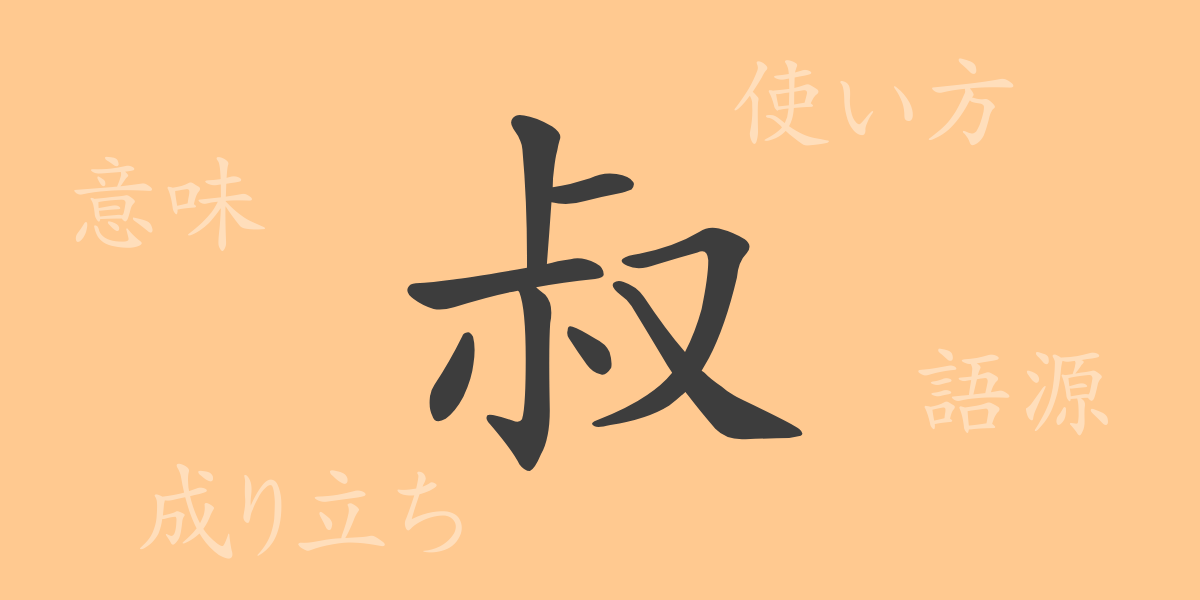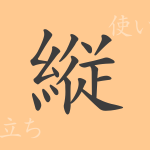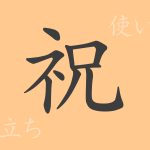The meanings and history embedded in each kanji character reveal the richness of Japanese culture and language. The common kanji “叔(しゅく, shuku)” is one such example, deeply rooted in our daily lives. This article delves into the origins, meanings, uses, readings, stroke count, and radicals of “叔(しゅく, shuku),” and also touches on idiomatic expressions and proverbs that use this character. Let’s explore the hidden stories behind “叔(しゅく, shuku)” and delve deeply into the world of kanji.
叔(しゅく, shuku)の成り立ち(語源)
The origin of the kanji “叔(しゅく, shuku)” dates back to ancient China. It was originally used as an honorific for younger siblings among brothers. Under the feudal system of ancient China, family hierarchy was highly valued, which led to the creation of such titles. This character was later introduced to Japan, where it acquired unique meanings and uses, evolving into its current form.
叔(しゅく, shuku)の意味と用法
The kanji “叔(しゅく, shuku)” primarily means “uncle,” especially referring to one’s father’s younger brother. It is also used broadly for younger male relatives or younger men with whom one shares a close relationship. As an honorific or respectful title, it is used within families and as part of compound words.
叔(しゅく, shuku)の読み方・画数・部首
The readings and basic information of the kanji “叔(しゅく, shuku)” are as follows:
- 読み方: 音読みで「シュク(しゅく, shuku)」、訓読みで「おじ」
- 画数: 全8画
- 部首: 又(またのぶ, matanobu)
叔(しゅく, shuku)を使った熟語・慣用句・ことわざとその意味
Here are some idiomatic expressions and compound words that include “叔(しゅく, shuku)”:
- 叔父(しゅくふ, shukufu)- One’s father’s younger brother.
- 叔母(しゅくぼ, shukubo)- The wife of one’s father’s younger brother.
- 叔父貴(しゅくふき, shukufuki)- A respectful term for one’s father’s younger brother.
- 叔母貴(しゅくぼき, shukuboki)- A respectful term for the wife of one’s father’s younger brother.
These terms are commonly used in daily life to refer to relatives.
叔(しゅく, shuku)についてのまとめ
The kanji “叔(しゅく, shuku)” plays an important role in Japanese as a term for relatives. Its origin, meaning, and usage are deeply rooted in Japanese culture and family systems, passing down values and history through language. Idioms and expressions that include “叔(しゅく, shuku)” are often used with respect and affection when referring to family members, highlighting the richness of the Japanese language. Understanding the meaning embedded in this single kanji allows us to appreciate the culture and traditions behind the words.

























